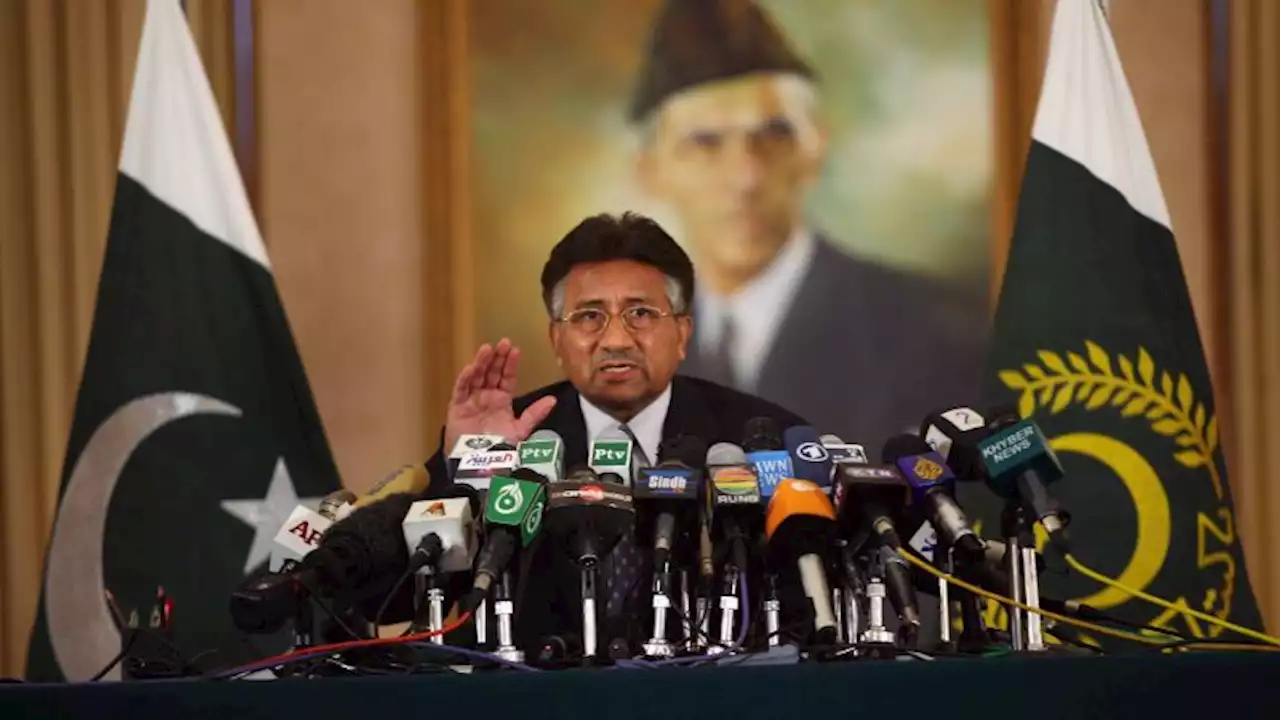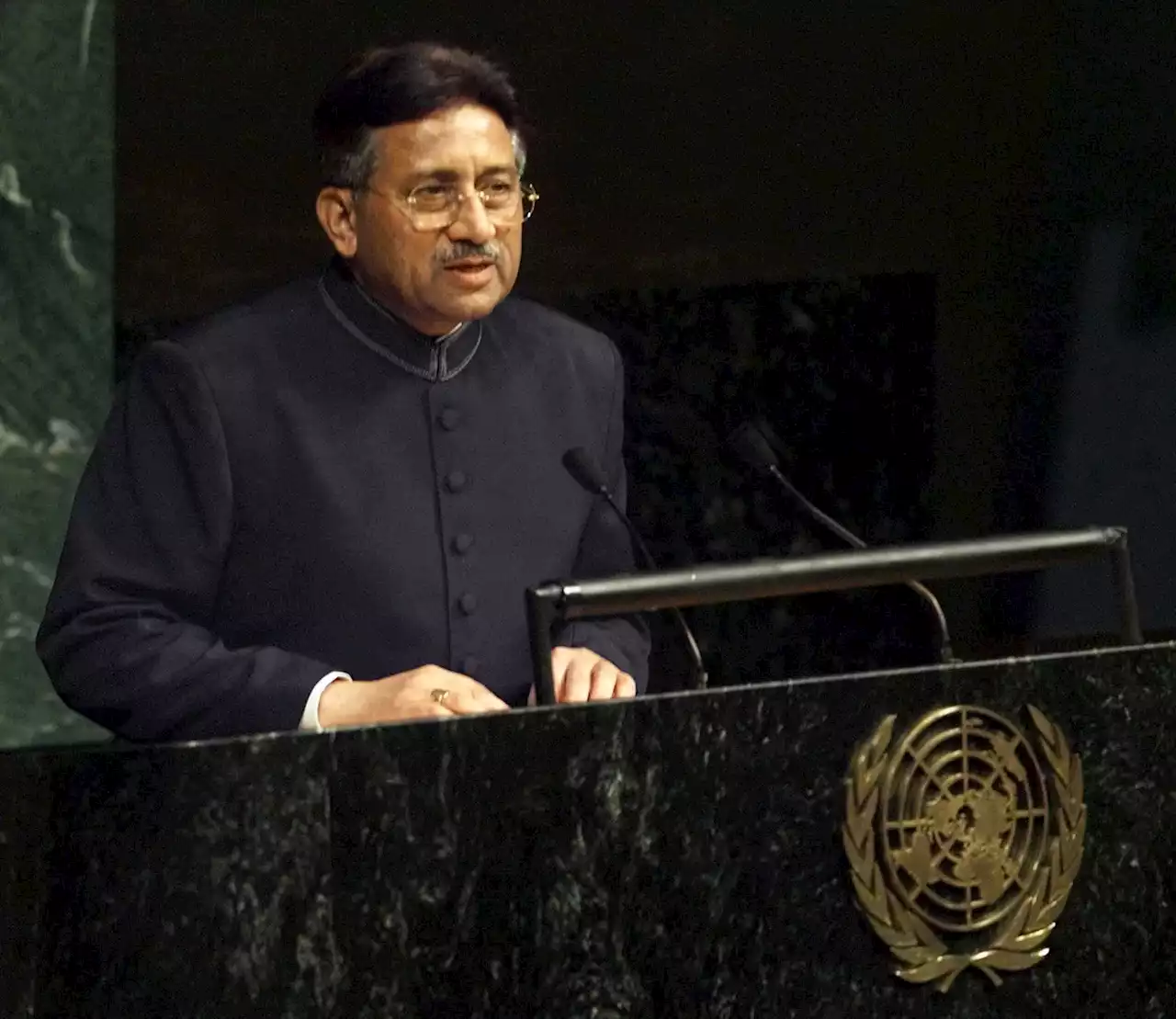Gen. Pervez Musharraf, who seized power in a bloodless coup and later led a reluctant Pakistan into aiding the U.S. war in Afghanistan against the Taliban, has died. He was 79.
“Going through a difficult stage where recovery is not possible and organs are malfunctioning,” the family said. They later said he also needed access to the drug daratumumab, which is used to treat multiple myeloma. That bone marrow cancer can cause amyloidosis.
By Sept. 12, then-U.S. Secretary of State Colin Powell told Musharraf that Pakistan would either be “with us or against us.” Musharraf said another American official threatened to bomb Pakistan ”back into the Stone Age” if it chose the latter. “After 9/11, then President Musharraf made a strategic shift to abandon the Taliban and support the U.S. in the war on terror, but neither side believes the other has lived up to expectations flowing from that decision,” a 2009 U.S. cable from then-Ambassador Anne Patterson published by WikiLeaks said, describing what had become the diplomatic equivalent of a loveless marriage.
Born Aug. 11, 1943, in New Delhi, India, Musharraf was the middle son of a diplomat. His family joined millions of other Muslims in fleeing westward when predominantly Hindu India and Islamic Pakistan split during independence from Britain in 1947. The partition saw hundreds of thousands of people killed in riots and fighting.
Another major scandal emerged under his rule when the world discovered that famed Pakistani nuclear scientist A.Q. Khan, long associated with the country’s atomic bomb, had been selling centrifuge designs and other secrets to countries including Iran, Libya and North Korea, making tens of millions of dollars. Those designs helped Pyongyang to arm itself with a nuclear weapon, while centrifuges from Khan’s designs still spin in Iran amid the collapse of Tehran’s nuclear deal with world powers.
Musharraf’s domestic support eventually eroded. He held flawed elections in late 2002 — only after changing the constitution to give himself sweeping powers to sack the prime minister and parliament. He then reneged on a promise to stand down as army chief by the end of 2004. Under pressure at home and abroad to restore civilian rule, Musharraf stepped down as army chief. Though he won another five-year presidential term, Musharraf faced a major crisis following former Prime Minister Benazir Bhutto’s assassination in December 2007 at a campaign rally as she sought to become prime minister for the third time.
Australia Latest News, Australia Headlines
Similar News:You can also read news stories similar to this one that we have collected from other news sources.
 Pakistan's former President Pervez Musharraf dies in Dubai | CNNPakistan's former President General Pervez Musharraf has died in Dubai after a prolonged illness at Dubai American Hospital, according to a statement from the Pakistani military.
Pakistan's former President Pervez Musharraf dies in Dubai | CNNPakistan's former President General Pervez Musharraf has died in Dubai after a prolonged illness at Dubai American Hospital, according to a statement from the Pakistani military.
Read more »
 Pakistan's Musharraf, military ruler who allied with the U.S. and promoted moderate IslamMusharraf, 79, died in hospital after a long illness after spending years in self-imposed exile, Pakistan media reported on Sunday. He enjoyed strong support for many years, but his heavy-handed use of the military to quell dissent and continued backing of the U.S. in its fight against al Qaeda and the Afghan Taliban ultimately led to his downfall.
Pakistan's Musharraf, military ruler who allied with the U.S. and promoted moderate IslamMusharraf, 79, died in hospital after a long illness after spending years in self-imposed exile, Pakistan media reported on Sunday. He enjoyed strong support for many years, but his heavy-handed use of the military to quell dissent and continued backing of the U.S. in its fight against al Qaeda and the Afghan Taliban ultimately led to his downfall.
Read more »
 Grab the Fossil Gen 6 Wellness Edition or its hybrid counterpart with a sweet discountAmazon is now offering both smartwatches with a nice 30% discount
Grab the Fossil Gen 6 Wellness Edition or its hybrid counterpart with a sweet discountAmazon is now offering both smartwatches with a nice 30% discount
Read more »
 21 Money Lessons Millennials Learned The Hard Way That They Hope Gen Z Can Avoid'You don’t want to be stuck in a toxic environment because you can’t afford to leave.'
21 Money Lessons Millennials Learned The Hard Way That They Hope Gen Z Can Avoid'You don’t want to be stuck in a toxic environment because you can’t afford to leave.'
Read more »
 Bubble Skincare Heads to the U.K.Gen Z darling Bubble Skincare is taking its accessible ethos to new territories.
Bubble Skincare Heads to the U.K.Gen Z darling Bubble Skincare is taking its accessible ethos to new territories.
Read more »
 Retirement: Gen Z 'is actually saving money' while millennials aren't, researcher saysAccording to the upcoming Center for Generational Kinetic’s Annual State of Gen Z study, 70% of Gen Z respondents stated that it's important to invest now so they can retire in the future while 45% of millennials are putting off saving for retirement.
Retirement: Gen Z 'is actually saving money' while millennials aren't, researcher saysAccording to the upcoming Center for Generational Kinetic’s Annual State of Gen Z study, 70% of Gen Z respondents stated that it's important to invest now so they can retire in the future while 45% of millennials are putting off saving for retirement.
Read more »
